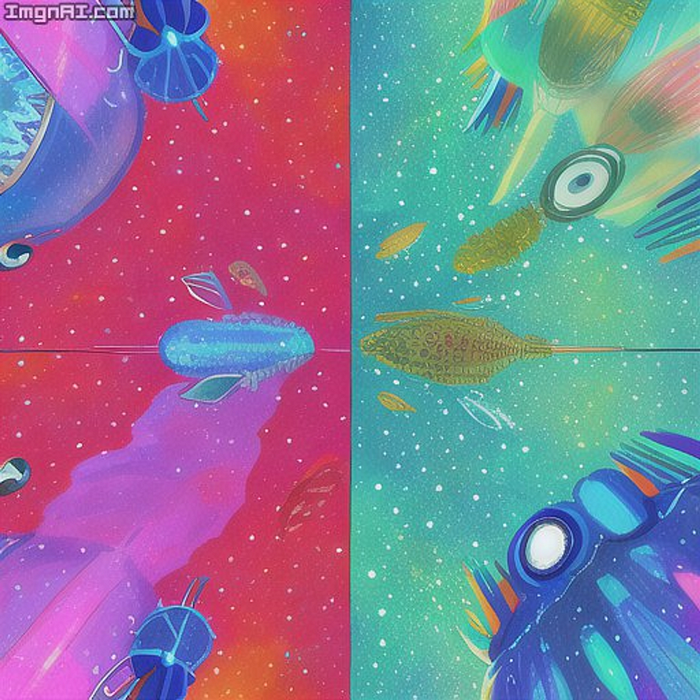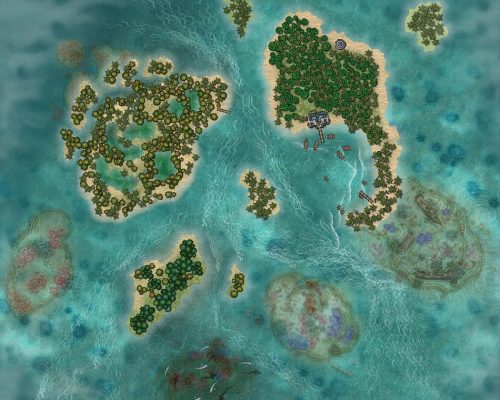
The oceans are vast and mysterious, covering over 70% of the Earth’s surface. They are home to an incredible diversity of creatures, from the largest blue whale to the tiniest plankton. Plankton may be small, but their role in the ocean ecosystem is critical. They serve as the foundation of the food chain, support the health of marine life, and even play a vital role in regulating the Earth’s climate.
Plankton are a diverse group of organisms that include phytoplankton, zooplankton, and bacterioplankton. Phytoplankton are photosynthetic organisms that use sunlight, carbon dioxide, and nutrients to produce organic matter. They are responsible for generating up to 50% of the oxygen in the Earth’s atmosphere, which is critical for the survival of all living things on the planet. Zooplankton, on the other hand, are tiny animals that feed on phytoplankton and serve as food for larger marine animals, including fish, squid, and whales. Bacterioplankton are the smallest members of the plankton community and play a vital role in the cycling of organic matter in the ocean.
Despite their small size, plankton are essential to the health of the ocean ecosystem. They form the base of the food chain, providing a vital source of nutrition for a wide range of marine life. Phytoplankton, in particular, are responsible for generating much of the organic matter that is consumed by other organisms in the ocean. They also play a crucial role in the carbon cycle, absorbing large amounts of carbon dioxide from the atmosphere and converting it into organic carbon through photosynthesis and are responsible as well for relasing oxygen into the atmosphere..
Phytoplankton are incredibly diverse, with thousands of different species that come in a variety of shapes and sizes. They are found in virtually every aquatic environment, from freshwater lakes to the open ocean. Some phytoplankton are even capable of bioluminescence, producing a bright, glowing light that illuminates the ocean at night.
Zooplankton are equally diverse, with a wide variety of species that include copepods, krill, and jellyfish. These tiny animals are a critical source of food for larger marine animals, such as fish, squid, and whales. They are also an essential part of the ocean food web, helping to transfer energy and nutrients from the base of the food chain to higher trophic levels.
Bacterioplankton may be the smallest members of the plankton community, but they play an incredibly important role in the cycling of organic matter in the ocean. They break down organic matter, such as dead phytoplankton and other organic debris, and release nutrients that can be used by other organisms. Bacterioplankton are also responsible for much of the decomposition that occurs in the ocean, helping to recycle nutrients and maintain the health of the ecosystem.
Despite their importance, plankton populations are facing numerous challenges. One of the biggest threats to plankton populations is climate change. Rising temperatures and changes in ocean chemistry, such as ocean acidification, can have a profound impact on the distribution and abundance of plankton. Changes in ocean temperature can also affect the timing of plankton blooms, which can have cascading effects throughout the food chain.
Plankton is highly sensitive to environmental changes, and pollution poses a significant threat to their survival. Polluted water contains various harmful substances such as heavy metals, pesticides, and oil spills that can have a devastating impact on plankton. The chemicals present in polluted water can damage the plankton’s reproductive system, cause deformities, and even lead to death. Apart from chemical pollution, plastic pollution also poses a significant threat to plankton. The oceans are filled with tons of plastic waste, which is gradually breaking down into microplastics. Furthermore, the increase in carbon dioxide emissions is causing ocean acidification, which is also a threat to plankton. Ocean acidification reduces the availability of calcium carbonate in seawater, which is essential for the formation of shells and skeletons of many sea criters. This can impact the overall population of plankton in the oceans indirectly as well.
Plankton are the foundation of the ocean’s food web and play a crucial role in maintaining the Earth’s ecological balance. Despite their small size, these microscopic organisms serve as the foundation of the marine food web, providing vital sustenance to numerous marine creatures. Additionally, they produce a significant amount of the Earth’s oxygen and absorb carbon dioxide, helping to regulate the Earth’s climate.
As such, the protection and preservation of plankton populations should be a top priority for scientists, policymakers, and individuals around the world. It is essential that we work together to reduce pollution, minimize our carbon footprint, and take proactive measures to mitigate the numerous threats to plankton populations.
Ultimately, the health of our planet’s oceans and the survival of countless marine species depend on the continued health and abundance of plankton. By working to protect these essential organisms, we can help ensure a sustainable future for ourselves and generations to come.

CWS is an experimental nft crypto defi game project built around the concept of marine ecosystems. CWS aims to create a sustainable and community-driven ecosystem for its users. The project allows active users to earn token rewards through token staking, NFT ownership, and more.
DISCLAIMER: This paper and the information contained within it were generated by an Artificial Intelligence (AI) model, and as such, may contain inaccuracies or be incorrect. It is the reader’s responsibility to conduct their own research and make their own decisions based on the information presented. The information contained in this paper should not be construed as financial advice. The authors and/or publishers of this paper assume no responsibility for any errors or omissions and shall not be held liable for any loss or damage of any kind arising from the use of the information contained within. The reader assumes full responsibility for any actions they take based on the information contained in this paper. This paper is provided for educational and informational purposes only and is not intended to be investment advice. Please be aware that the use of AI technology may result in unexpected outcomes. The authors and/or publishers of this paper make no representations or warranties of any kind, express or implied, about the completeness, accuracy, reliability, suitability or availability with respect to the information, products, services, or related graphics contained in this paper for any purpose. Any reliance placed on such information is strictly at your own risk.


